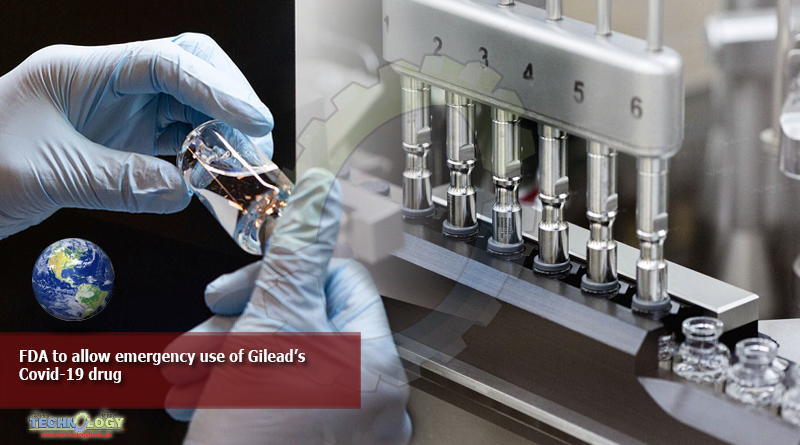The Food and Drug Administration announced Friday that it would permit emergency use of remdesivir, the antiviral medicine from Gilead Sciences, to treat patients with Covid-19.

The decision to issue an “emergency use authorization” was based on positive results from a government-conducted clinical trial, announced Wednesday, that showed remdesivir accelerated the recovery time of patients with Covid-19 compared to a placebo and from a study conducted by Gilead that studied two different treatment durations of the medicine. At the same time, the government’s top infectious disease expert cautioned that the drug was not a “knockout.”
“I’m pleased to announce that Gilead has now an EUA from the FDA for remdesivir — and you know what that is, because it’s been the hot thing in the papers and in the media for the last little while. An important treatment for hospitalized coronavirus patients,” President Donald Trump said Friday speaking in the Oval Office, where Gilead chief executive Daniel O’Day was also in attendance.
The EUA allows the use of unapproved medical products in a time of emergency — essentially sidestepping the longer, traditional FDA review process. In recent weeks, the agency has used this regulatory shortcut for the rapid rollout of repurposed drugs, Covid-19 tests, face mask decontamination systems, and even plastic face shields.
“There is limited information known about the safety and effectiveness of using remdesivir to treat people in the hospital with COVID-19. Remdesivir was shown in a clinical trial to shorten the time to recovery in some people,” the FDA stated in a fact sheet on the EUA decision.
In a letter from the FDA’s chief scientist, Denise Hinton, issuing the approval to Gilead, the agency said that the approval was based on “topline data” of the remdesivir study, meaning the FDA has not had time to fully analyze the results as it would for a conventional approval. Hinton said that the drug should be used only in patients with an SpO2, a measure of blood oxygenation, that is less than 94%. The letter also states that no printed matter related to the drug “may represent or suggest that such products are safe or effective.”
Among the most controversial EUA decisions was the FDA’s move to allow the use of the antimalarial drugs hydroxychloroquine and chloroquine to treat Covid-19 in hospitalized patients despite mixed evidence from clinical trials that the medicines were effective or safe.
The greenlighting of remdesivir is based on a study conducted by the National Institute of Allergy and Infectious Disease that enrolled more than 1,000 patients with Covid-19. Treatment with the drug demonstrated a 31% faster time to recovery compared to a placebo. The median time to recovery was 11 days for remdesivir; 15 days for placebo.
Under law, the FDA may issue an EUA if “it is reasonable to believe that the product may be effective” and “the known and potential benefits outweigh the known and potential risks.”
EUAs are also much quicker than traditional drug approvals. Rather than weeks or months, the FDA can clear emergency authorizations in just a few hours or days.
Originally Publish at: https://www.statnews.com/
